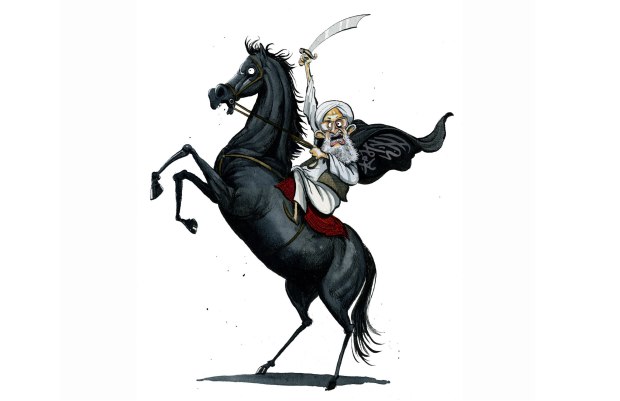English football will soon have an independent regulator, with the power to block clubs from joining breakaway leagues and also try and prevent teams from going out of business. The football watchdog is part of plans set out in the government’s white paper, published today. For a struggling Tory party, this presents a golden opportunity to stand up for the game’s working-class supporters in provincial towns and post-industrial communities. It will also spark much-needed life into the Tories’ flagging levelling-up and social-cohesion agendas.
Plans for a regulator to protect the beautiful game are overdue. Following the August 2019 expulsion of Bury FC and the High Court’s winding-up of Macclesfield Town in September 2020 – two clubs in north-west England formed in 1885 and 1874 respectively – it was clear that English football’s fragmented system of self-governance was not fit for purpose. Financial mismanagement has been allowed to fester in the game, with local clubs all too often reduced to the playthings of irresponsible owners and reckless directors.
For so many fans, football is, of course, far more than a commercial enterprise; teams are vital community assets. My hometown club of Luton Town FC – the oldest professional club in southern England – is performing well on the pitch, currently sitting in the Championship’s play-off places (and crucially, one place above local rivals Watford). But it does its fair share off it, contributing to the social, cultural, and economic well-being of our local communities.
Football clubs with rich histories and long-standing traditions have the potential to defuse community tensions
Through its registered-charity Community Trust, Luton Town FC provides a range of projects designed to improve the lives of marginalised and disadvantaged groups – especially younger men at risk of offending or already involved in gang-related activity. The Community Trust aims to play its part in integrating the town’s diverse communities. This is especially important in the case of Luton, which in the period after 9/11 was home to the anti-military ‘Butchers of Basra’ demonstrations and the subsequent formation of the English Defence League (EDL). The organisation also engages with stigmatised members of the local community, including those suffering from mental health issues, homelessness, and disability.
Luton’s recent history has been tumultuous: from the dark days of insolvency proceedings and dropping out of the football league after suffering three consecutive relegations, to rebuilding itself as an established, community-oriented Championship outfit where supporters have a genuine say in sensitive matters of club identity. But this transformation provides a useful guide for the kind of culture a new independent regulator for English football should strive to foster.
Financially sustainable and socially-responsible football clubs are a key asset for families and communities. Along with the creation of an independent regulator for English football, the UK government should re-energise the flagship levelling-up policy of Boris Johnson’s government and place football clubs – especially in provincial market towns and post-industrial communities – at the heart of it. Making use of football’s enduring popularity in left-behind areas, the Government should co-ordinate with football charities and foundations to develop the capacity of local communities to improve health outcomes, raise educational attainment, boost employment prospects, and enable integration.
Football is a game that can help to bridge divides, with local clubs well positioned to bring together sometimes troubled communities. The government should review how a shared sense of civic pride in football clubs can be used as a foundation to nurture bonds of social trust and mutual respect between residentially-separated communities. The building of inclusive place-based identities remains a challenge in a string of multi-ethnic, Northern, post-industrial towns. However, local football clubs with rich histories and long-standing traditions have the potential to defuse community tensions, harness feelings of local pride and cultivate a sense of common purpose – ultimately helping to cultivate more cohesive and resilient communities.
An agile and dynamic independent regulator for English football – one that ensures club owners are on the right side of the line between ambition and recklessness, encourages corporate social responsibility, and provides fans with a greater say over their club’s cultural heritage – is needed more than ever. It embodies an uplifting and wholesome conservatism that is rooted in civic spirit, community well-being, and respect for tradition – something that the Tories have no choice but to adopt if they have want to reconnect with working-class Brexitland after their truly disastrous Liz Truss experiment.
Local football clubs should no longer be left exposed to imprudent owners and directors who have no real understanding of their social meaning and fail to treat their own supporters with the respect they deserve – they should be protected civic assets that consider the fans to be vital stakeholders and work in the wider public interest.
Got something to add? Join the discussion and comment below.
Get 10 issues for just $10
Subscribe to The Spectator Australia today for the next 10 magazine issues, plus full online access, for just $10.




















Comments
Don't miss out
Join the conversation with other Spectator Australia readers. Subscribe to leave a comment.
SUBSCRIBEAlready a subscriber? Log in